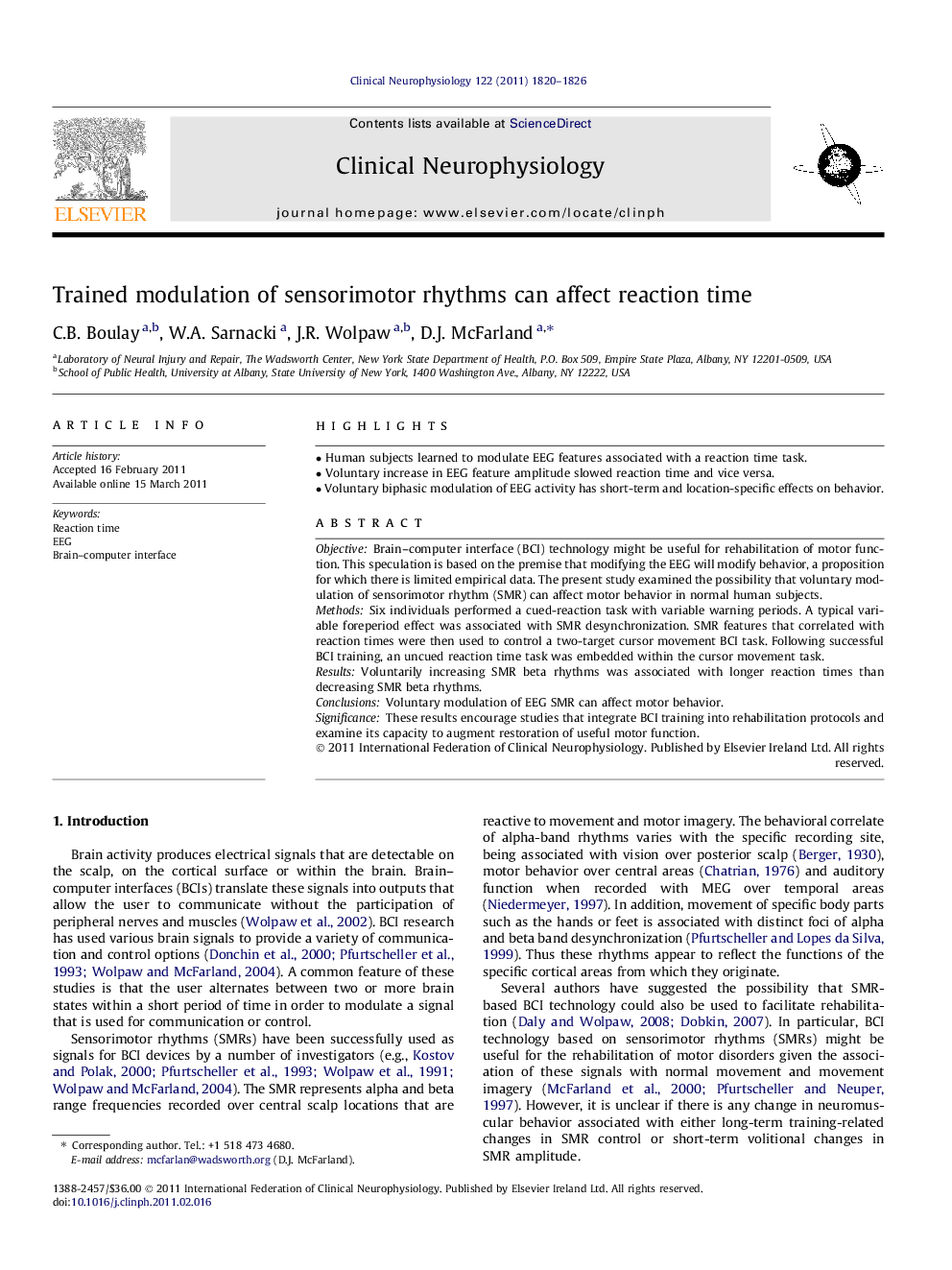| Article ID | Journal | Published Year | Pages | File Type |
|---|---|---|---|---|
| 3045791 | Clinical Neurophysiology | 2011 | 7 Pages |
ObjectiveBrain–computer interface (BCI) technology might be useful for rehabilitation of motor function. This speculation is based on the premise that modifying the EEG will modify behavior, a proposition for which there is limited empirical data. The present study examined the possibility that voluntary modulation of sensorimotor rhythm (SMR) can affect motor behavior in normal human subjects.MethodsSix individuals performed a cued-reaction task with variable warning periods. A typical variable foreperiod effect was associated with SMR desynchronization. SMR features that correlated with reaction times were then used to control a two-target cursor movement BCI task. Following successful BCI training, an uncued reaction time task was embedded within the cursor movement task.ResultsVoluntarily increasing SMR beta rhythms was associated with longer reaction times than decreasing SMR beta rhythms.ConclusionsVoluntary modulation of EEG SMR can affect motor behavior.SignificanceThese results encourage studies that integrate BCI training into rehabilitation protocols and examine its capacity to augment restoration of useful motor function.
Research highlights► Human subjects learned to modulate EEG features associated with a reaction time task. ► Voluntary increase in EEG feature amplitude slowed reaction time and vice versa. ► Voluntary biphasic modulation of EEG activity has short-term and location-specific effects on behavior.
